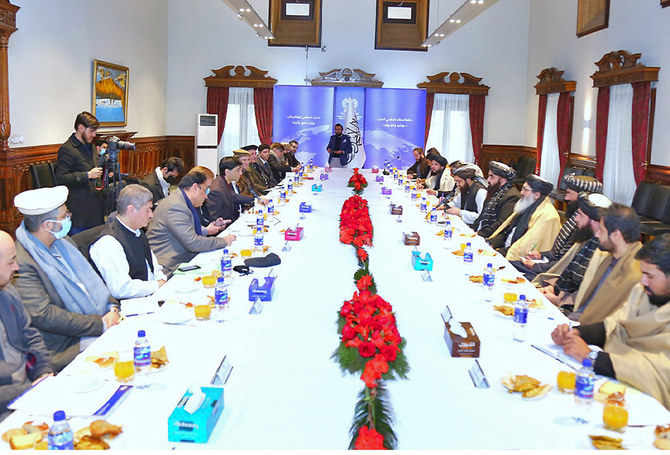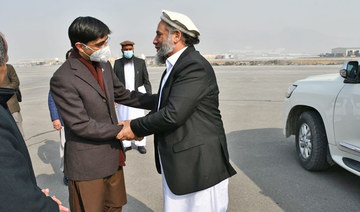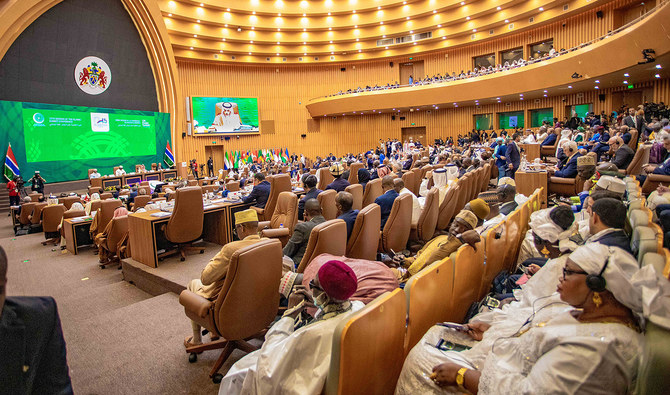KARACHI: A senior Afghan business leader said on Saturday he was optimistic that an ongoing visit of Pakistan’s national security adviser (NSA) to Kabul would provide a much-needed impetus to trade between the two countries which had recently been on a decline for a number of reasons.
Pakistan’s NSA Dr. Moeed Yusuf took an inter-ministerial delegation to Kabul on Saturday where he met with Afghanistan’s acting deputy prime minister Abdul Salam Hanafi along with other officials and members of local business community.
According to Pakistan’s ambassador to Afghanistan Mansoor Ahmad Khan, Yusuf and other members of his delegation would continue to hold meetings to strengthen humanitarian and economic engagement with Afghan authorities.
Afghan traders, who met with Pakistani officials, called their visit “effective.”
“I think Dr. Moeed Yousuf’s visit is very effective since it will help resolve several issues, including the problem of border congestion,” Naqeebullah Safi, the executive director of Pakistan-Afghanistan Joint Chamber of Commerce and Industry (PAJCCI), told Arab News from Kabul over the phone. “The two sides have formed a technical committee comprising members from both countries which will hold regular meetings to solve the issue on the spot.”

NSA Dr. Moeed Yusuf (6R) along with Pakistani delegation hold talks with Afghan officials of industry and trade ministry (left) in Kabul, Afghanistan, on January 29, 2022. (@MoICAfghanistan/Twitter)
He said that Pakistani officials agreed to waive off a previously necessary condition of using electronic import forms which helped them monitor the source and outflows of money along with goods that were imported without foreign exchange through Pakistan’s central bank.
Safi added the decision would allow both countries to trade in their local currencies.
Earlier, Pakistan had also abolished the e-form condition imposed on its exports to Afghanistan.
“The unique thing about today’s [Saturday’s] meeting was that we discussed opportunities that exist for both countries,” he continued. “Visa service, exchange of delegations, agricultural sector and bilateral bus service were some of the issues that came up for discussion.”
The Afghan business leader said the two sides also agreed on a barter trade mechanism to get rid of transactions in currencies.
“There was also discussion on bilateral transit to grant Pakistan access to Central Asian countries,” he informed. “The conversation also took place about Afghan products and their movement through the port in Karachi and Wagha border [between Pakistan and India]. The two sides also agreed on an action plan with timeline to implement the initiative.”
The trade talk between the two countries comes at a time when they have witnessed a massive decrease in bilateral commerce since the Taliban takeover of Kabul. In December 2021, Pakistan posted a decline of 34 percent to $59.1 million in its exports to Afghanistan as compared to $89.2 million recorded a year before that. According to the Trade Development Authority of Pakistan (TDAP), the country’s imports also declined by two percent to $60.31 million during this period.
Pakistan’s business community attributes this sudden decline in the quantum of trade to a lack of a proper medium of exchange – such as the US dollar – and the reluctance of Pakistani banks to accept Afghanistan’s guarantees despite Islamabad’s decision to facilitate trade in the Pakistani rupee.
“The shortage of dollar is the main problem while trading with Afghanistan because people are reluctant to make transactions in Afghani [Afghanistan’s local currency],” Zubair Motiwala, PAJCCI chairman, told Arab News.
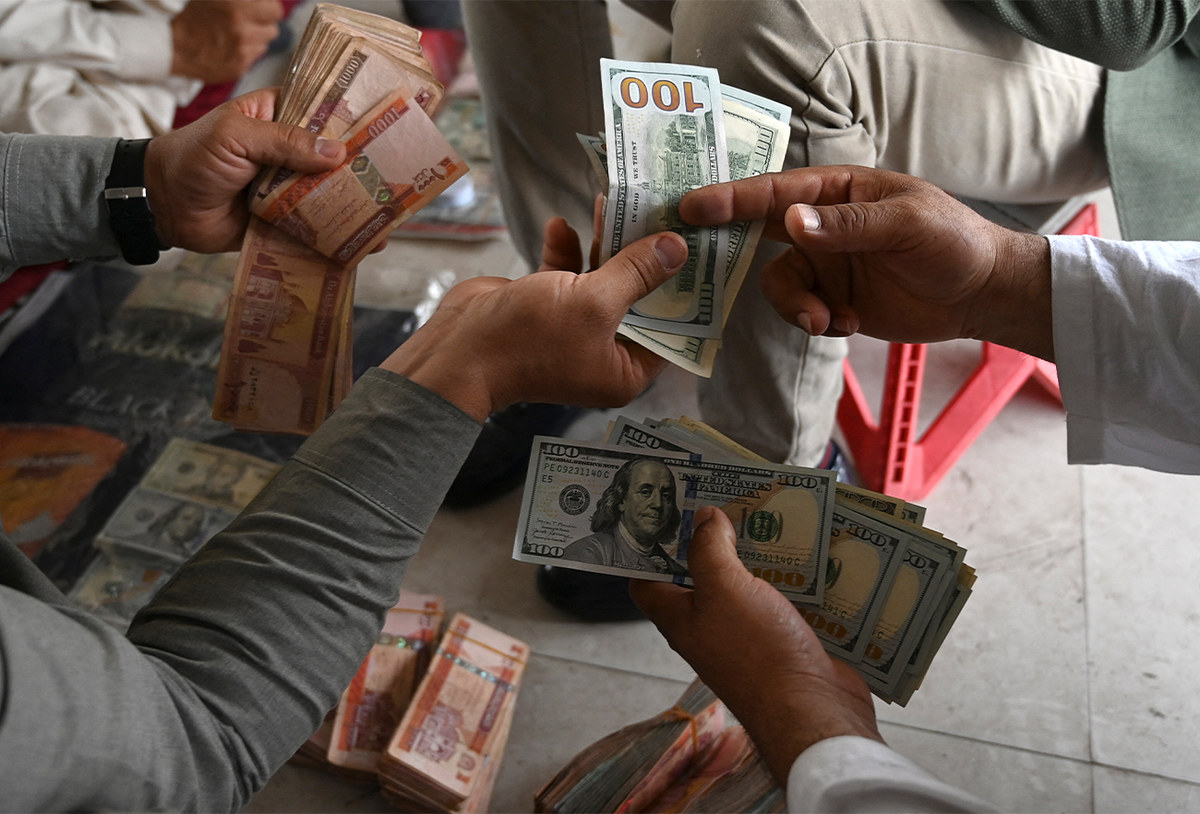
A currency dealer (R) counts US dollars at the Shahzada exchange market in Kabul, Afghanistan, on June 21, 2021. (AFP/File)
Pakistan allows trade of fruits, vegetables, dairy products, meat, rice, fish, poultry, sugar confectionery, bakery products, salt, cement, pharmaceuticals, matches, textile articles, building stones and surgical instruments with Afghanistan in rupee.
Afghanistan has been facing severe financial problems since the Taliban takeover as international aid came to a sudden halt and the United States froze $9.5 billion in Afghan central bank assets held overseas.
Motiwala said the withdrawal of cash-on-counter facility, requirement of advance payments and the reluctance of banks to accept third-party payments in case of Afghanistan were not only contributing to border congestion but also lowering the trade quantum.
“A comprehensive long-term policy for Afghanistan is required which facilitates trade in Pakistan’s national currency along with barter mechanism until the new regime finds greater financial stability,” he maintained.
Traders said the current situation at border terminals and high freight and container retention charges had diverted Afghanistan’s business to a nearby Iranian port.
“The trade volume is diverting to Bandar Abbas where importers face little problem,” Fazal Ghani Awan, member of the Pakistan-Afghanistan Business Council at the Federation of Pakistan Chambers of Commerce and Industry, told Arab News.
“Previously, we used to import 800 containers of Indian-origin sugar for Afghanistan every month under the Afghan Transit Trade (ATT),” he continued, “but the number has now come down to around 150 containers.”
“The shipping companies have increased the retention charges from Rs300,000 to Rs800,000 per container which are refunded after 15 to 20 days,” he said.
Awan noted that high charges in the name of security deposit for containers and slow border clearance process were also discouraging Afghan importers from looking toward Pakistan.
“We believe that the two governments should take up the issue of high charges by shipping companies and slow goods clearance process in their meetings in Kabul,” he said.
Safi, the Afghan business leader, maintained his country’s trade had diverted to Iran in the past due to political issues between Pakistan and Afghanistan, adding the two sides only needed to sort out technical details now to increase their bilateral trade.
“The visit is more effective from the perspective of trade and economy since most discussions between the two sides are focusing on these areas,” he said. “As political issues become irrelevant between the two countries, Pakistan and Afghanistan only need to address technical details.”
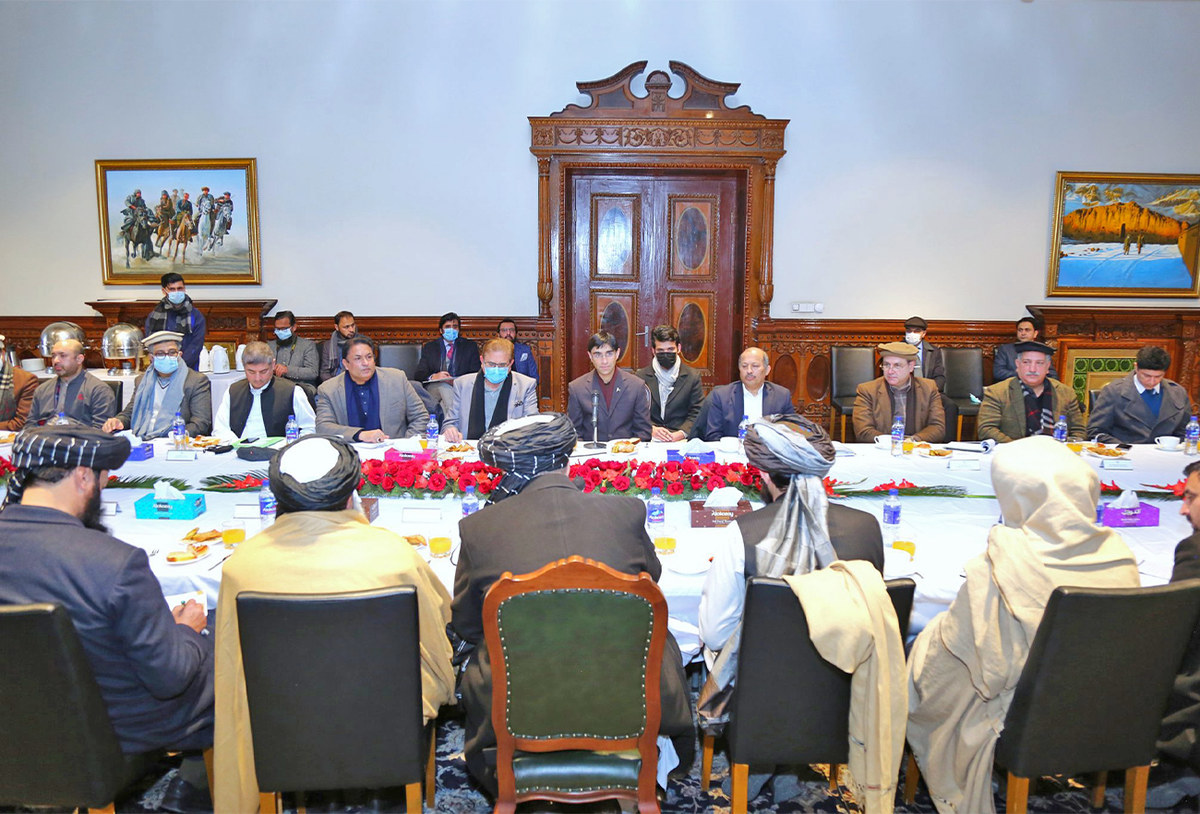
NSA Dr. Moeed Yusuf (5L) along with the Pakistani delegation calls on Afghanistan's Acting Foreign Minister Mawlawi Amir Khan Muttaqi (6R) at Storai Palace in Kabul, Afghanistan, on January 29, 2022. (@QaharBalkhi/Twitter)



